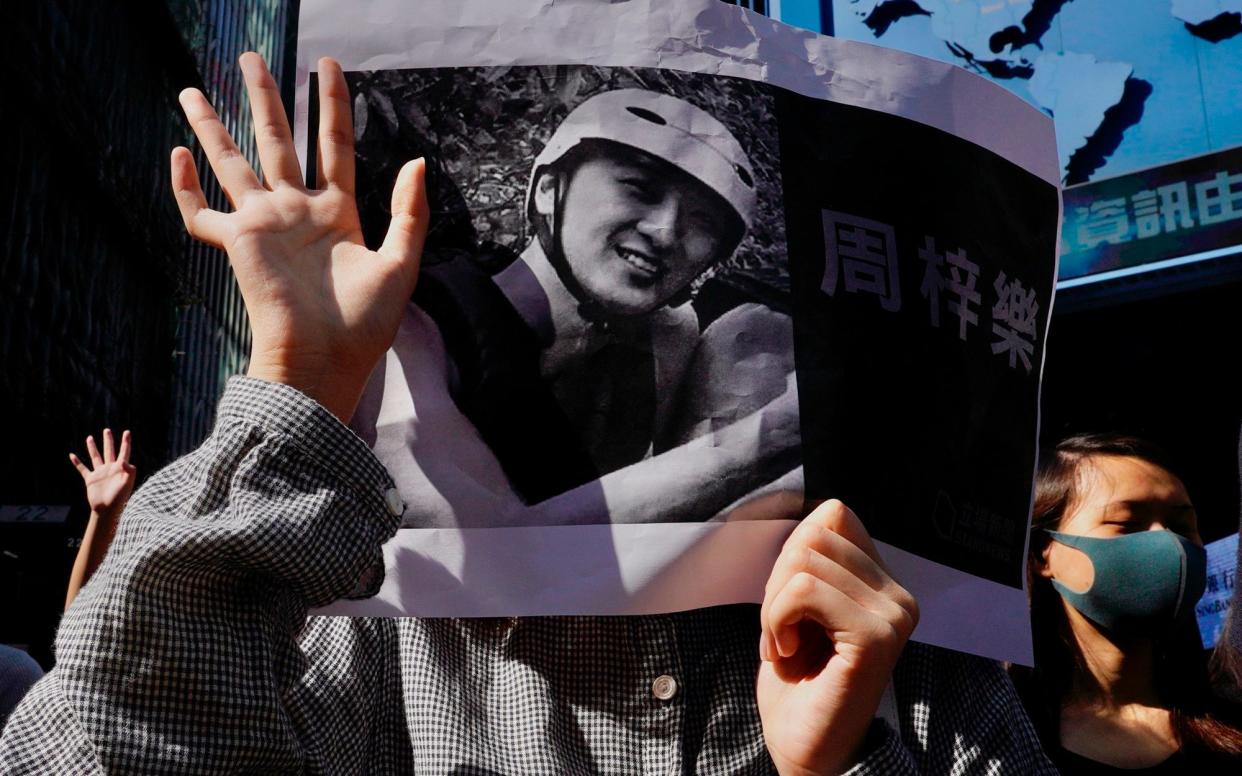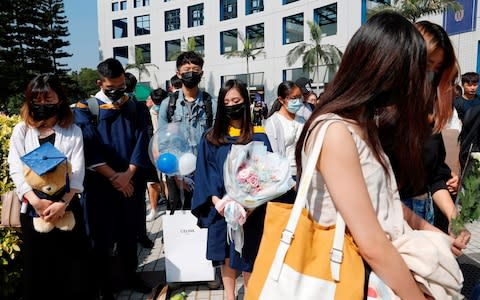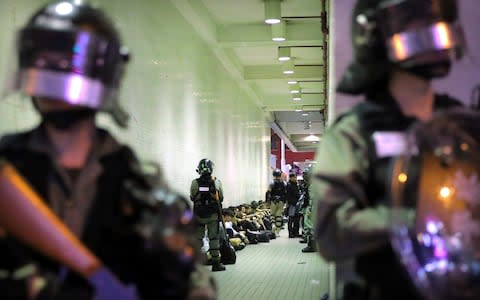Hong Kong university vandalised after student protester becomes first to die after falling from roof

Hong Kong students attacked their own university and clashed with police as anger spilled over following the death of a protester.
Furious demonstrators trashed a campus branch of Starbucks and vandalised the porch of the chancellor as pressure built on the university to condemn police accused of chasing the student before he fell to his death.
Chow Tsz-lok, 22, became the first student to die in five months of protests, after he succumbed to injuries sustained on Monday when he fell from a parking lot.
The circumstances leading up to Mr Chow’s fall remain unclear, though police say he was believed to have fallen from a parking deck while officers dispersed nearby protesters and fired tear gas on Monday.
Police have refuted allegations that officers had been chasing Mr Chow when he fell. They say the deceased had been seen wandering alone in the car park.

Although protesters have been severely injured, no deaths have been directly linked to the protests so far.
Pressure has been building on universities to take a public stance and condemn police for alleged brutality against demonstrators.
The University of Science & Technology, where Mr Chow was a student, held its graduation ceremony Friday morning, and its head Wei Shyy paused the proceedings to announce Chow's death.
After the ceremony was cut short, hundreds of students gathered to mourn Chow's death and condemn what they described as police brutality.
Some went on to vandalise facilities, including the porch of Shyy's residence.
Shyy later released a statement to students backing calls for an independent inquiry.
"We will be outraged if there is no acceptable explanation offered to us," he wrote.

After writing "condemn police brutality," on the Starbucks' glass wall, hundreds of students, most in masks and carrying candles, then lined up in silence at UST to lay white flowers in tribute to Chow.
Thousands also left flowers at the spot where he fell at the car park in Tseung Kwan O, to the east of the Kowloon peninsula, occasionally singing hymns.
In the shopping district of Causeway Bay, hundreds lined the streets in silence, with the eerie hum of the city in the background.
Then the mood changed.
People started shouting abuse at "black police", referring to perceived brutality, and blocked streets in Causeway Bay.
In Mong Kok, dozens of activists barricaded off Nathan Road, which leads to the harbour to the south.
They vandalised a closed metro entrance, throwing in bricks and pouring oil through the metal grill, and destroyed a phone booth in a small explosion.
There were clashes in the New Territories town of Sha Tin.
In Mong Kok, dozens of activists barricaded off Nathan Road, which leads to the harbour to the south. They vandalised a closed metro entrance, throwing in bricks and pouring oil through the metal grill, and destroyed a phone booth in a small explosion.
Police used a robot to detonate a suspected explosive device on a side street after at least three blasts in the area amid a standoff with petrol-bomb throwing protesters lasting hours.
Protesters first sparked against a now-withdrawn extradition proposal that would have allowed suspects to be sent to mainland China for trial. The extradition bill magnified concerns that Communist Party influence was eroding freedoms in Hong Kong.
Hong Kong is governed under a “one country, two systems” model that guarantees the city liberties that aren’t allowed under authoritarian control in mainland China. But concerns have grown that the city’s unique way of life was disappearing after the former British colony was returned to Beijing rule in 1997.
